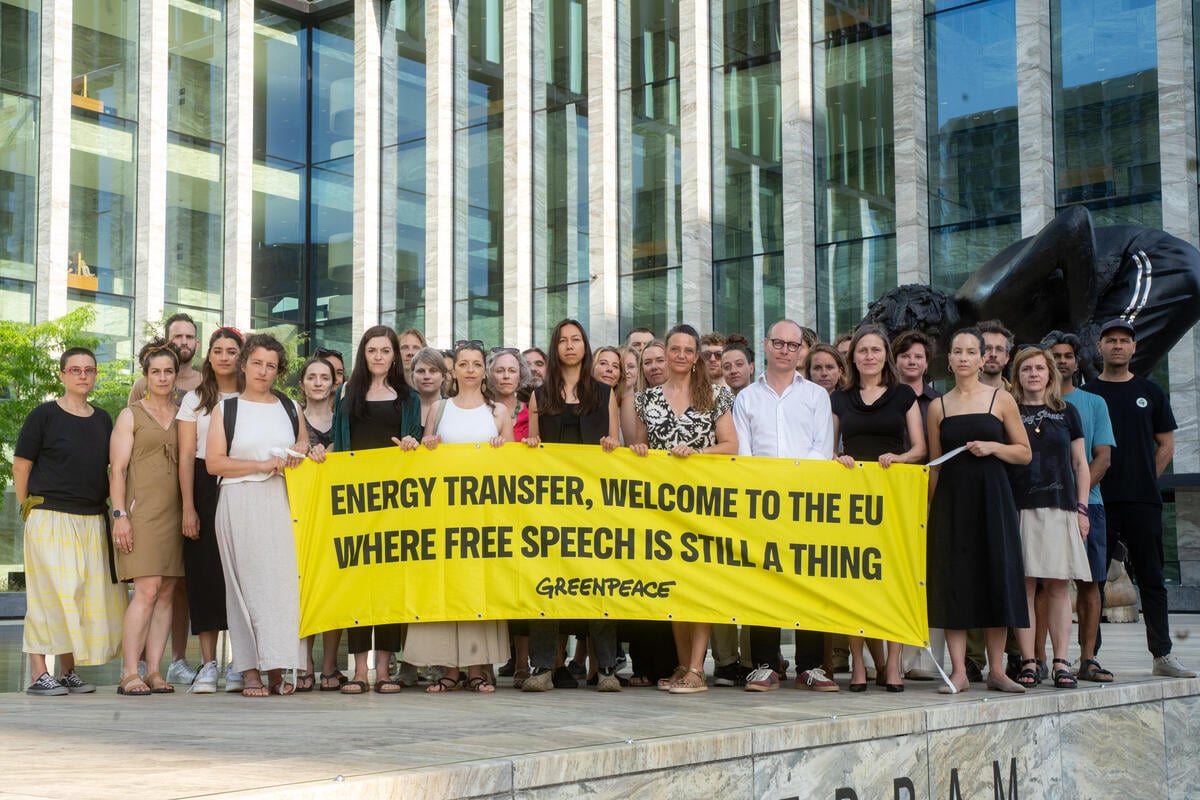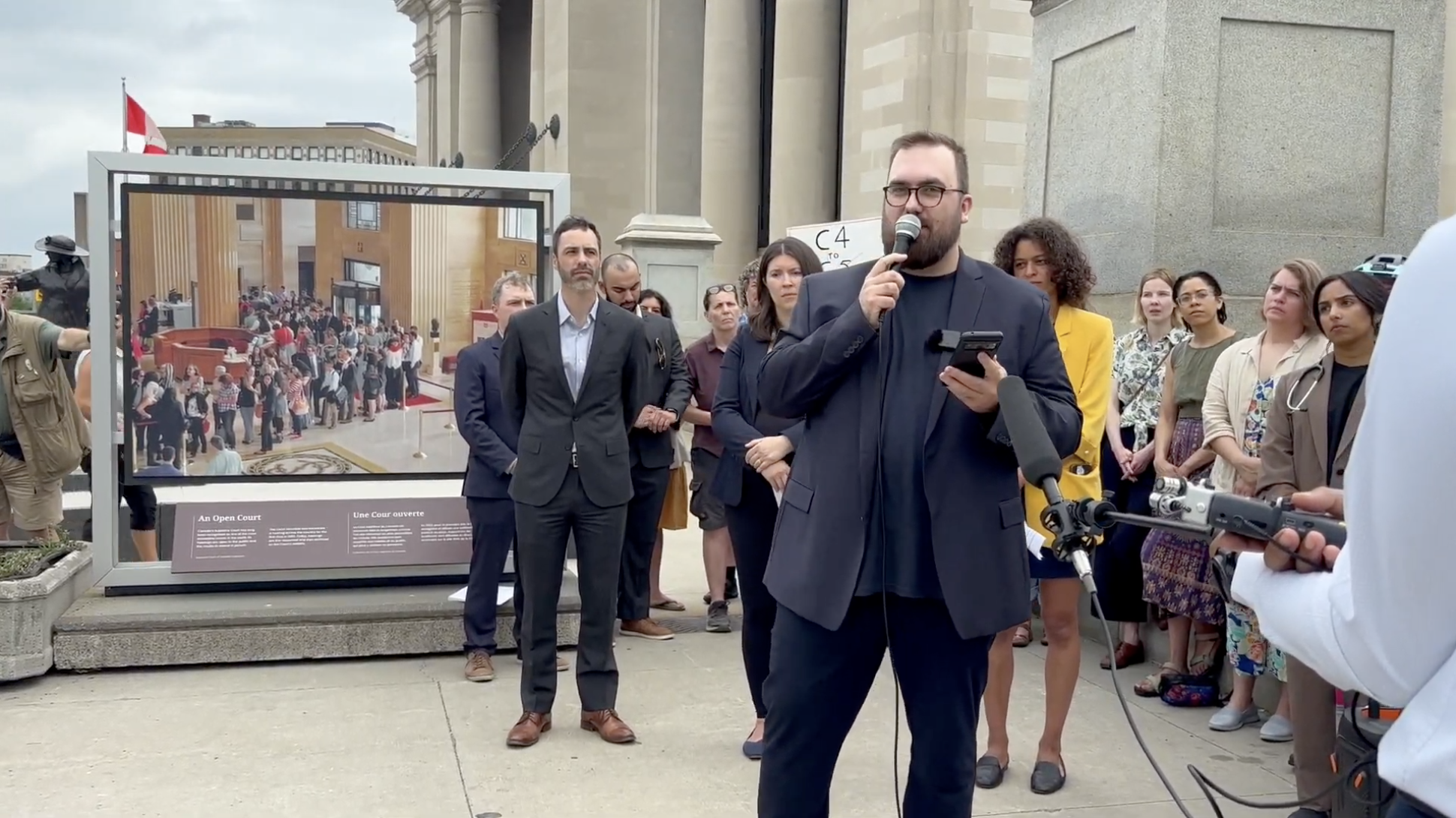We are hearing more and more about the “stimulus packages” that the government is putting forward to address the impacts of COVID-19 on our economy. If you’re like me, you get hives just thinking about the plan that was put forward in 2008 following the financial crash that basically “rewarded” the executives and companies who had caused the crisis, and left behind regular people who lost savings, retirement funds and their homes.
Maybe you’re thinking: “I’d love to discuss the importance of FAIR and CLIMATE-FRIENDLY stimulus packages at my next virtual hang out with friends, but I don’t know how to explain it clearly without having Keith Stewart’s (the Greenpeace Canada expert) blogs in front of me!”
Don’t panic… we’re here to help!
3 things to know:
- The speed and depth of this recession is unprecedented. It will likely be even more severe in Canada because as a major oil producer we are highly exposed to the decline of the oil industry.
- During the last bailout (in response to the 2008 financial crisis), governments focused on saving the banks. This benefited their executives and shareholders (who had taken unreasonable risks in large part because deregulation allowed them to), but it did not benefit the public who paid for those bailouts.
- Corporations have huge lobbying power, so when a crisis hits they are already talking to governments behind closed doors about solutions. When governments then give money to corporations, they often claim that this will ‘trickle down’ to their workers and customers, but the bulk of those public funds go to executives and shareholders.
“Hmmm not so complicated after all!” you might think. “But what should we propose the government do instead?”
Excellent question! At Greenpeace Canada, we would like our government to keep in mind 6 key things when creating recovery plans:
- Bailout workers and communities – not corporate executives.
- Economic relief must go directly to workers.
- Provide free health support to all people.
- Invest in housing and clean water in Indigenous communities.
- Build resilient communities to prevent future crises.
- Create jobs by investing in environmental clean-up and energy transition.
And if you’re worried about the questions you might get from your relatives, colleagues, or friends who still think you’re too [insert the qualifier most often used here like “too young”, “too left-wing”, “too green”, “too radical”, “too hippie”, etc], to understand the “real economic reality” … Here are a bunch of short questions and answers that will help you feel more confident. You can do it!
Q&A:
What would a just and green bail-out look like exactly? Would this translate into longer term policies and/or programs?
- It would invest in worker retraining and public infrastructure to support a transition off of fossil fuels.
- It would respect Indigenous rights, including Free Prior and Informed Consent FPIC
- It would focus on lifting up communities that have been on the front lines of the fossil fuel extraction based economy and leave no one behind.
Fossil fuel companies create jobs and bring money back to Canada, how could a transition off of fossil fuels realistically help all of those workers?
The oil industry is a sunset industry – meaning it is already in decline. It won’t end overnight, but we need to start planning for the future now, that means investing in alternatives now so we don’t end up even more economically vulnerable further down the road. A Clean Energy Canada & Navius Research report is highlighting the fact that there were 298,000 jobs in Canada’s clean energy sector in 2017. In between 2010 and 2017 only, the number of jobs grew by 2.2% – nearly 60% faster than the Canadian average!
Can we expect our economy to fully recover, if we don’t support large corporations?
Governments have already made loans available for corporations – it is our opinion that direct subsidies will likely worsen income inequality and unfairness within our society. What we need now is money for people who have been laid off – through no fault of their own – to buy food, provide shelter and the necessities of life. All of that will help the broader economy, in a fairer and more sustainable way.
Why was the government so invested in the oil industry if it’s an industry in decline?
The oil industry only looks profitable if we allow them to ignore climate and environmental costs.
Even if it once seemed like a good investment, now that we know we need to rapidly transition off fossil fuels to stabilize the climate we should stop propping up this industry and invest our money in building the alternatives.
A Green New Deal – What the hell is that?
A Green New Deal is a vision of rapid, inclusive and far-reaching transition, to slash emissions, protect critical biodiversity, meet the demands of the multiple crises we face, and create over a million jobs in the process. It would involve the full implementation of the United Nations Declaration on the Rights of Indigenous Peoples (UNDRIP) including the right to Free, Prior and Informed Consent (FPIC), dozens of other pieces of legislation, new programs and institutions, and a huge mobilization calling on the creativity and participation of all of us.
We know that when the state perceives an emergency, rapid transformations occur. Banks are saved, auto companies are bailed out. We have the ability to build a 100% renewable economy based on public ownership and dignified, well-paying work and we know that the federal government, in collaboration with all other levels of government and Indigenous Nations, has the capacity to pull this off. But we also know that only the people – in a deep, wide, and democratic process – can give it the legitimacy and true diversity it needs to succeed.
If you agreed with what you just read, please share these ideas with your own community.
- Sign our petition asking the government to invest in people not oil.
- Call your MP and let them know you want a fair and green bailout plan! Not one that rewards the oil industry and its executives. Your call goes to voicemail? Please leave a message, it’s allowed. 😉



